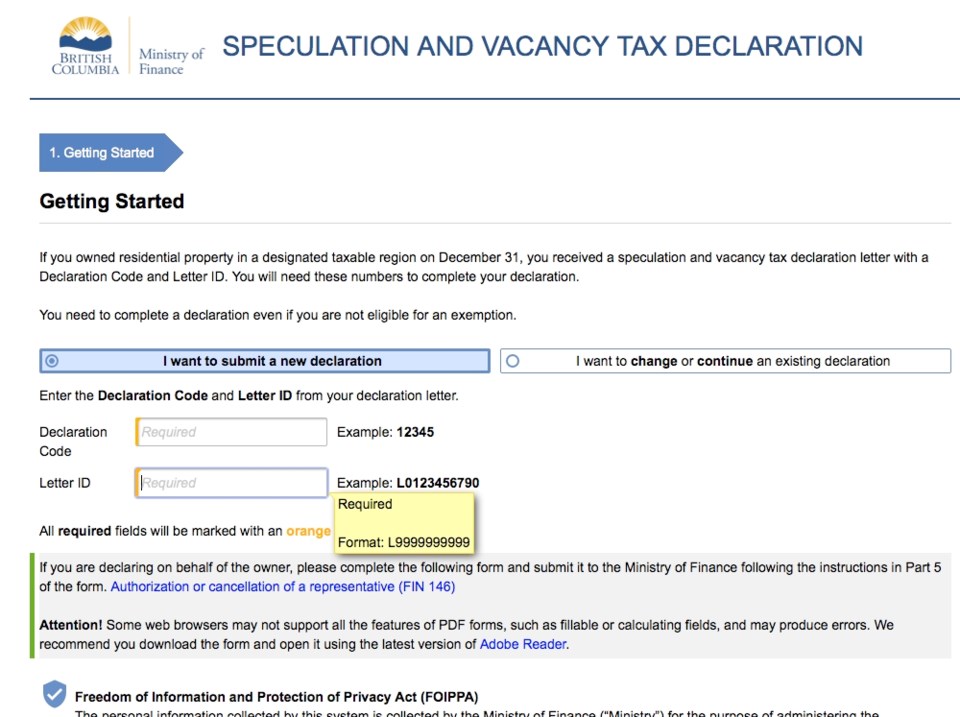The NDP government has cast a wide net in the hunt for owners of vacant properties who are liable for the speculation and vacancy tax. Mailing out 1.6 million notices in order to identify the estimated 32,000 people who qualify as speculators is a major undertaking.
The cost of the mail-out alone was substantial. There will be more costs in processing all that data, plus dealing with the estimated 100,000 owners who missed the deadline.
Another cost in the background came to light in the legislature. Opposition Liberals said a contract extension was awarded a year ago to a private company related to implementing the speculation tax.
It was valued at $14 million, they said.
Citizens’ Services Minister Jinny Sims indirectly confirmed the arrangement.
The firm is a Victoria-based information technology company that has done contract work for the B.C. government for years.
Sims confirmed it was an extension to a contract the firm had with the previous government. She said a privacy assessment was done and reviewed by the information and privacy commissioner.
There are two specific privacy issues. One is the fact that the speculation tax declarations that are required from all owners of B.C. real estate includes the requirement that people divulge their federal social insurance numbers.
The other is that the contracted firm is the subsidiary of a U.S. parent company. That might or might not bring the U.S. Patriot Act into play. That is the notorious federal law that gives U.S. security and surveillance agencies wide access to privately held data.
That law, written in response to 9-11, prompted provincial restrictions on private data management 15 years ago designed to protect privacy.
B.C. Liberal MLA Tracy Redies queried the minister about whether the new information about property owners is being protected.
“The systems are secure,” said Sims. But Redies said the U.S. parent company was responsible for a glitch that left 1.9 million Michigan residents’ personal information exposed.
The opposition also keyed on the specific requirement to disclose social insurance numbers, a request that has rankled more than a few people who filled out the forms.
The SIN is an entirely federal identifier. Provincial governments rarely, if ever, use it.
And the approvals the B.C. government sought in order to do so are the subject of some confusion.
Sims said the privacy issues associated with the tax were reviewed by the Finance Ministry, her ministry and then checked by the information and privacy commission, which raised no concerns.
But the commission has notified multiple people that it is considering matters related to the collection and use of personal information in the administration of the speculation tax.
It advised people of that last month, adding that it would not be able to reach a decision on the issues by the March 31 deadline for completing the speculation tax form.
Two of the people concerned about the SIN issue are Steve and Peg Orcherton. He’s a former NDP MLA and she is a former school trustee and board chair. They have been objecting to the design of the speculation tax and the requirement to disclose SINs for weeks. They’ve been active in NDP circles for years and are on a first-name basis with many people in the current government. But they’ve yet to get answers to their concerns.
They were reassured by constituency office staff that the information and privacy commissioner reviewed the legislation beforehand. But then the commission informed them and other concerned people that it was reviewing the personal information demand, specifically the SIN.
Peg Orcherton said Monday they reluctantly completed the declaration prior to the deadline. But she’s still suspicious about the request and is continuing to object to it.
She said property owners are being treated differently from other B.C. citizens, in that their SINS are in the possession of the government. Some word is expected soon from the information privacy office. Any changes that are demanded would count as another cost of casting the net so broadly, to catch so few.




